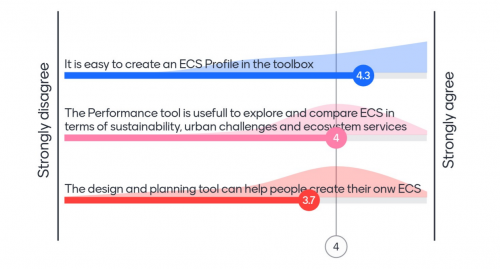On 29th and 30th September 2021, partners and consortium members of EdiCitNet participated in the third edition of the EdiCitNet Annual Meeting. While the meeting was held online due to the ongoing pandemic, some partners got the chance to attend the meeting in person in local clusters, including in Berlin, Ljubljana and Girona. It was a pleasant change to see so many project partners meeting together around Europe – following the necessary hygiene regulations, of course!
After a warm welcome by the coordination team, the project’s new grant manager was formally introduced to the partners. This was followed by short presentations and work updates by all of the different Work Packages leads. After lunch, all attendees got the chance to take part in one of the interactive workshops on offer. The topics of the workshops were:
- Learnings from the Living Labs
This workshop was led by Work Package 5 and offered a summary of the work done in the project’s Living Labs – in Berlin, Oslo, Andernach and Rotterdam – and the different methods and indicators used to measure progress and project successes.
- Building a Community of Practice: Governance, Engagement and Integration of ECS in planning
Led by Work Package 4, this workshop looked at how the City Teams were functioning, how to integrate the Edible Cities concept into urban planning and discussed ideas around how best to build an interactive and sustainable community of practice.
- Hands-on Experience with the EdiCitNet Toolbox: Create, Design and Explore your ECS Profile
The third workshop was organized by Work Package 2 and introduced different aspects and functionalities of the EdiCitNet Toolbox to the partners, including technical parameters on how to maintain an ECS with regard to required water, soil, nutrient cycle, and more.
Day 2 included a session on reporting issues with a current status update from all partners as well as a discussion on open questions, an introduction to the project’s new Community Management Tool (LINK) and an Extraordinary General Assembly, where the eligible partners voted to consolidate and strengthen the Edible Cities Network further by merging and integrating the – currently separate – EdiCitNet Toolbox(LINK) and EdiCitNet Marketplace (LINK) into one joint platform.
Thank you to everyone who participated in the EdiCitNet Annual Meeting 2021! We look forward to seeing you again next time.


